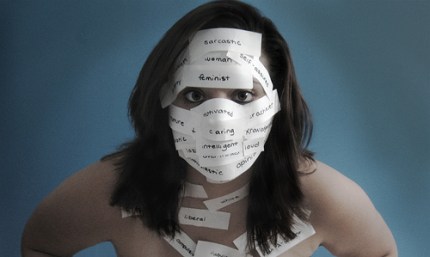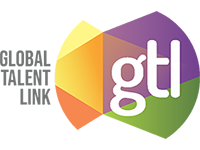 I’ll get the ball rolling: I identify as a woman so I am expected to like pink and have longer hair. I identify as a Northeasterner so I am expected to speak with a Boston accent (lose my R’s and talk with my hands) when I am upset. I identify as an over-analyst and a worrier so I am expected to avoid large crowds and make to-do lists. Everything I just mentioned is a part of my identity. It affects the way I see the world, the way I make decisions, and the way I introduce myself and communicate with others. But in what ways do my identities and labels affect how the world sees me? Identifying with a group or label is like unlocking a power-up in a game or getting hired at a new job: you get all the perks of super-speed and free-donut Fridays, but you also get all the unsavory assumptions. When I come out and say “I identify as a woman,” the following happens:
I’ll get the ball rolling: I identify as a woman so I am expected to like pink and have longer hair. I identify as a Northeasterner so I am expected to speak with a Boston accent (lose my R’s and talk with my hands) when I am upset. I identify as an over-analyst and a worrier so I am expected to avoid large crowds and make to-do lists. Everything I just mentioned is a part of my identity. It affects the way I see the world, the way I make decisions, and the way I introduce myself and communicate with others. But in what ways do my identities and labels affect how the world sees me? Identifying with a group or label is like unlocking a power-up in a game or getting hired at a new job: you get all the perks of super-speed and free-donut Fridays, but you also get all the unsavory assumptions. When I come out and say “I identify as a woman,” the following happens:
- Other women will be more likely to empathize and connect with me, as I have become part of their ingroup
- Non-women will connect less with me, as I have become part of their outgroup
- I will be compared against the expectations for a standard, prototypical woman, and the more I fit those expectations the more I will be liked
- If I introduce myself as a woman and not by my name, I will be categorized first as part of that group
- People who don’t know me will assume I believe and do all the same things as a stereotypical woman, and will judge me on that label and not on myself
- People who do know me will care less about my identity as a woman because it is no longer useful to them, and will judge me based on my personality

Labeling yourself is the human thing to do. People automatically feel safer around those who share their identities, regardless of how different individuals within that group might be. Historically, this categorization into groups helped with survival: ancient tribes who could easily differentiate their members could better allocate resources and fight off competing intruders trying to steal those resources. But today, in an interconnected and non-tribal world, labels can get in the way. We still gravitate towards people like us, but you might be missing out on a best friend or lifelong partner because you are subconsciously averse to associating with someone of a different group.
 And what happens when you don’t identify with something but people assume you do? If you look Japanese but identify as American, or don’t use a cane or sunglasses but identify as blind? I am American by nationality so I am expected to like capitalism, fried food, and spaghetti Westerns. But I don’t. Because I look the part, people assume I also act the part. And if I reveal the truth, I might be trusted or liked less. Most (but not all) of the time, all of this is subconscious; others usually don’t know they are judging you, and you usually can’t tell exactly what others think. But these processes are occurring nonetheless, and it is crucial that we recognize what we are getting ourselves into when taking on a new identity or label.
And what happens when you don’t identify with something but people assume you do? If you look Japanese but identify as American, or don’t use a cane or sunglasses but identify as blind? I am American by nationality so I am expected to like capitalism, fried food, and spaghetti Westerns. But I don’t. Because I look the part, people assume I also act the part. And if I reveal the truth, I might be trusted or liked less. Most (but not all) of the time, all of this is subconscious; others usually don’t know they are judging you, and you usually can’t tell exactly what others think. But these processes are occurring nonetheless, and it is crucial that we recognize what we are getting ourselves into when taking on a new identity or label.
All of this is to say that labels are important. They help us explain who we are, and they help us fit into the correct group. But labels should just be labels, categories just categories. Instead, we assign meaning and expectation to labels; in essence, we create stereotypes. Girls wear pink, smart people have fewer friends, blind people wear sunglasses, Americans eat pizza. This goes beyond seeing girls as girls and Americans as Americans; it creates an expectation that waits to be violated, and a tension waiting to emerge. How do we fight this unconscious process, this socialized way of assuming things about people based on arbitrary labels? By recognizing that, beneath everything else, we all identify as human. Common identities create a sense of safety and community, right? Therein is the answer. We are all a human community; we may look different on the outside and inside, we may think and believe differently, but we do share a common group. You don’t have to remember all of this next time you make the decision to identify with a new or different label, but do remember that no matter what your label is, you belong to the most important group of all: humanity.
Girls wear pink, smart people have fewer friends, blind people wear sunglasses, Americans eat pizza. This goes beyond seeing girls as girls and Americans as Americans; it creates an expectation that waits to be violated, and a tension waiting to emerge. How do we fight this unconscious process, this socialized way of assuming things about people based on arbitrary labels? By recognizing that, beneath everything else, we all identify as human. Common identities create a sense of safety and community, right? Therein is the answer. We are all a human community; we may look different on the outside and inside, we may think and believe differently, but we do share a common group. You don’t have to remember all of this next time you make the decision to identify with a new or different label, but do remember that no matter what your label is, you belong to the most important group of all: humanity.
